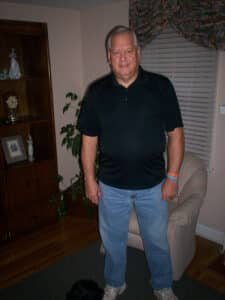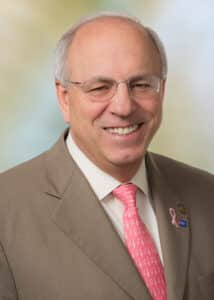By Deborah Jeanne Sergeant

Anyone who has received a clean bill of health after cancer treatments wants to maintain their good health.
Although nothing can guarantee cancer won’t come back, people in remission can certainly increase their chances of good healthy by taking a few steps.
“Survivorship is a key part of cancer care,” said Arnold Baskies, chairman of the Global Health Advisory Council and past chairman of the board of directors, American Cancer Society, Inc. “The Commission on Cancer has recommended that all hospitals and providers provide a survivorship plan to patients. The American Cancer Society also recommends it. It includes information on the treatment rendered and what should be done in terms of follow-up and surveillance.”
Since 14 million people in the US have survived cancer—and Baskies estimates it will likely swell to 20 million in the next five to 10 years—developing survivorship plans will only increase in importance.
“The specific recommendations are relative to the type of cancer and treatment rendered,” Baskies said. “A specific survivorship care plan should be personalized.”
For example, a colon cancer survivor may have scheduled colonoscopy and blood tests or for lung surgery, CT scans and other tests. General recommendations typically include healthful diet, exercise, stress management and smoking cessation.
Baskies noted that any time survivors change providers outside their health system, “they need to take with them the information of what treatment they had and what needs to be done going forward.”
Mary Jo Parker, registered dietitian in private practice in Williamsville, recommends that survivors focus on fruits and vegetables, whole grains, healthful sources of fat and lean protein sources.

“Limit sugars and processed and packaged foods,” she said. “The best eating styles are traditional Mediterranean, DASH or MIND diets.”
One of her easiest tricks for ramping up the produce intake and eating a more balanced diet is to load half the plate at a meal with fruits and vegetables, fill one-quarter of it with a lean protein and fill the remaining quarter with a whole grain or starchy vegetable.
She also likes clients to drink at least 64 ounces of water and only healthful, non-sugar or artificially sweetened beverages like seltzers, tea or coffee but limited alcohol.
In addition to a healthful diet low in processed foods, red meats and dairy, Jennifer Wojcik, physician assistant and Survivorship Program director at Great Lakes Cancer Care in Williamsville, encourages clients to exercise.
“Get 150 minutes of moderate activity a week with cardiovascular and weight bearing exercise,” she said. “Weight-bearing exercise is good for bone health, which can be an issue with a lot of cancer survivors as some treatments affect bones.”
Some cancers are hormonally driven. To help mitigate this effect, Wojcik said to maintain a healthful weight, as fat cells store hormones.
As a breast cancer survivor herself, Pamela Paplham of Getzville speaks from firsthand experience with her patients. She is a doctor of nursing practice and advanced oncology certified nurse practitioner and associate dean for clinical programs at UB.
“One of the biggest things I found to keep myself health is getting a good night’s sleep,” Paplham said. “It’s underrated as far as how it contributes to people’s health. If I don’t get a good night’s sleep, I don’t have a good day the rest of the day.”
Since her experience with caner, she has become more conscious of exercising, reading food labels and monitoring her diet and watching her water intake. She likes journaling in a food diary where she can track what she eats and her fluids.
She encourages people who have recently completed treatments to “set small goals and reach that bar. They’ll feel much better about themselves. A lot of times, sometimes patients set goals that were great but a little too much for them. When they’d first go home after treatments rather than saying, ‘I’m going to walk to the end of the street,’ maybe the first day, go to the end of the driveway and maybe do that a few days; and then, three houses down. If they overshoot, they’ll feel lousy and down on themselves.”
Prostate cancer survivor Bill Krellner leads the Western New York chapter of Us Too, a prostate cancer support group. He encourages any cancer survivor to faithfully follow through on all recommended checkups. For Krellner, that means having his PSA level checked, even though “I’m nervous about it,” he said. “Even after 17 years, I get concerned. You’re never really out of the woods.”
That is why he believes it is so vital to join a support group and to find hobbies and interests that promote good mental health. He volunteers at the VA two days a week, serves on a consortium at Roswell Park Comprehensive Cancer Center and leads Us Too. He also likes going for walks and boating and fishing at his cottage on Honeoye Lake.
“If you keep busy, those problems seem to disappear,” he added. “But helping other people is what really helps me. I get a lot of enjoyment from it.”

